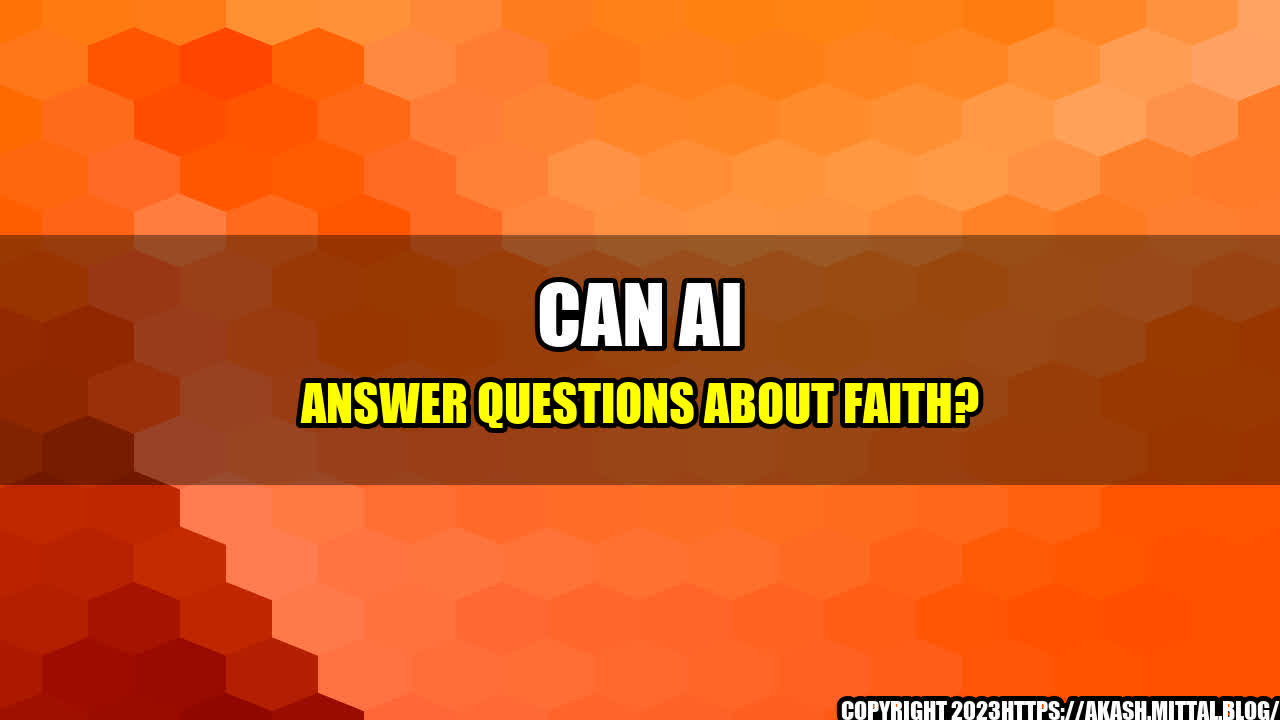As a young girl growing up in a devoutly religious family, Emma always asked the big questions. Why do we exist? Is there more to life than what we can see? What happens after death?
Her parents did their best to provide answers, but as she grew older and discovered the vastness of human knowledge, she realized the answers were not as straightforward as she had once believed. So, she turned to the internet for guidance.
Despite the countless articles and discussions available online, she still found herself struggling to find answers that satisfied her curiosity. That's when she stumbled upon an AI-powered chatbot designed to answer questions about faith.
"It was like a revelation," she recalls. "I could finally ask all the questions I had without fear of being judged or feeling like I was overburdening someone. And the answers were surprisingly thoughtful and nuanced."
Emma's experience is not unique. With the rise of AI technology, more and more people are turning to chatbots and virtual assistants to find answers to questions about faith and religion. But can AI truly provide meaningful insights into the mysteries of the universe?
The potential of AI in answering questions about faith
The short answer is yes. AI has the potential to provide a wealth of knowledge on a wide range of religious topics. For example, an AI-powered chatbot could:
- Provide information on the historical context and origins of various religious texts
- Answer theological questions about God, faith, and the afterlife
- Offer practical guidance on living a more religiously fulfilling life
- Connect users with religious leaders and communities
In fact, some religious organizations are already using AI to provide these services to their members. The Church of Jesus Christ of Latter-day Saints, for example, has developed an AI-powered chatbot called "Ask of God" that provides personalized responses to members' questions.
AI's limitations in addressing questions about faith
While AI has the potential to be a valuable resource for those seeking answers about faith, it's important to recognize its limitations. One of the main limitations is its lack of human understanding and empathy.
As Yaqub Chaudhary, a professor of religious studies at the University of Surrey, explains, "AI may be good at providing factual information, but religion is not just about facts. It's about emotions, experiences, and personal relationships. AI simply cannot replicate that."
Additionally, there is the risk of AI reinforcing biases and perpetuating misinformation. If an AI system is trained on flawed or narrow data, it may provide inaccurate or harmful answers to users.
Conclusion: The future of AI and faith
While AI is not a substitute for human wisdom and understanding, it can certainly be a powerful complement to it. As religious organizations and individuals continue to explore the potential of AI in answering questions about faith, it's important to keep in mind the limitations and risks involved.
Ultimately, the success of AI in addressing questions about faith will depend on its ability to collaborate with human experts and incorporate diverse perspectives and experiences. If done properly, AI can be a valuable tool for exploring the mysteries of the universe and finding meaning in our lives.

Curated by Team Akash.Mittal.Blog
Share on Twitter Share on LinkedIn